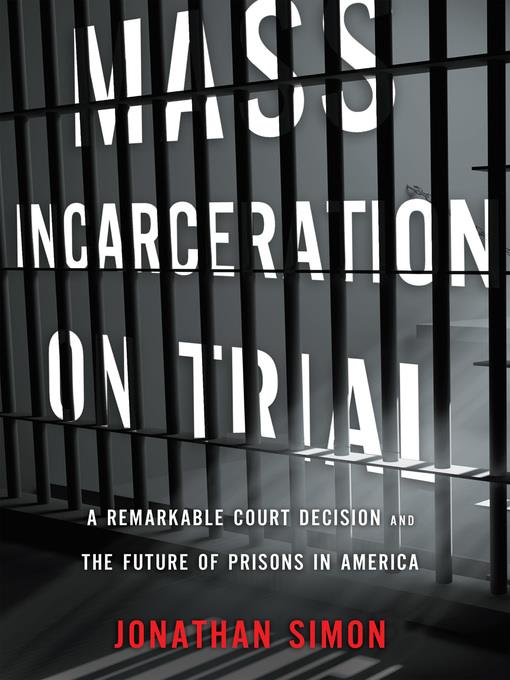
Mass Incarceration on Trial
A Remarkable Court Decision and the Future of Prisons in America
کتاب های مرتبط
- اطلاعات
- نقد و بررسی
- دیدگاه کاربران
نقد و بررسی

Starred review from June 16, 2014
UC Berkeley criminologist Simon (Governing Through Crime) offers an eloquent critique of the American prison system and uses several Supreme Court cases to examine the development of new jurisprudence that might end mass incarceration. His sketch of the history of mass incarceration attends to interlocking issues, such as racial politics, the upheavals of the 1960s, and media influence on public opinion. In his case studies, he focuses on the way decisions have addressed human rights violations arising from the prison system, from overcrowding, to the failure to reduce crime, to the torture of being incarcerated with a terminal illness. Simon’s most striking contribution comes in the discussion of “dignity” as a concept in human rights law. He argues that making prisons more humane and effective requires a “dignity cascade,” which will enshrine a basic notion of bodily integrity and decency in the edifice of law. Though the Eighth Amendment is often narrowly interpreted to prohibit only the most intentional torture, interpreting it to protect dignity would allow us to understand mass incarceration as inherently “cruel and unusual” because of the conditions it fosters. Simon’s accessible and powerful book deserves widespread attention.

July 1, 2014
A scholarly treatise on the case for American penal reform.Simon (Law/Univ. of California; Governing Through Crime: How the War on Crime Transformed American Democracy and Created a Culture of Fear, 2008) offers an update on the American prison industry and applauds its more recent progression from the inhumanely overpopulated confinement of past decades to what he terms as an "ebbing" evolution toward more dignified treatment of incarcerated individuals. He chronicles prison history back to the 1970s and '80s-decades of "extreme penology"-and looks at how California, amassing over 150 victims of serial killings throughout that era, became the epicenter of monstrous criminal activity with the only foreseeable solution being extreme incarceration. Simon astutely documents the sea change in prison reform simmering throughout the mid-1990s once community activists and prison specialists began rallying against the "unhinged and unchecked" "supermax" prisons fraught with overcrowding and largely dismissed chronic disease and mental illness issues. Significant litigation then sprung up, citing prisoners' human rights violations against the state of California, supported with disturbing photographs of barbaric conditions. These cases all culminated in the pivotal 2009 case of Coleman-Plata v. Schwarzenegger and the Supreme Court decision in Brown v. Plata, which set population limits on prisons to preserve inmates' Eighth Amendment rights. With mass incarceration's attempt at "twentieth-century correctional modernism" and crime deterrence deemed a failure with marked human rights infringements, California was ordered to drastically reduce prison populations with reframed parole programs and, optimally, improved crime-prevention strategies. Simon makes an impassioned plea for prison reform grounded in human dignity, and he leans toward more broad-brush restructuring into smaller and more specialized correctional facilities.A sound, sobering report that's more educative than eye-opening.
COPYRIGHT(2014) Kirkus Reviews, ALL RIGHTS RESERVED.

July 1, 2016
After examining several key court cases arising out of the appalling conditions in California's prisons, Simon (law, Univ. of California, Berkeley) theorizes that prison overcrowding creates cruel and unusual punishment. He shows how these cases that challenged that environment can result in a system that recognizes human rights.
Copyright 2016 Library Journal, LLC Used with permission.

























دیدگاه کاربران